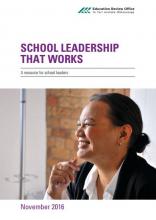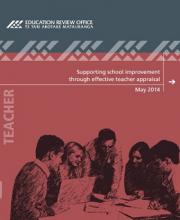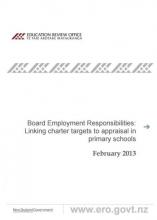Using data to determine the conversation that needs to be had
At McAuley High School, the use of student achievement data and other evidence is the catalyst for determining who needs to be part of the discussion to seek solutions and establish next steps.








